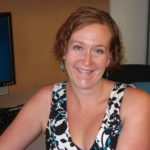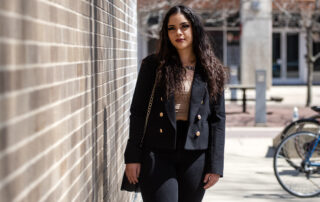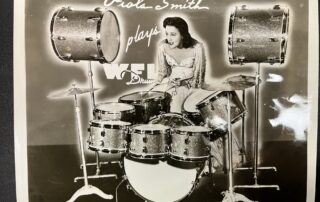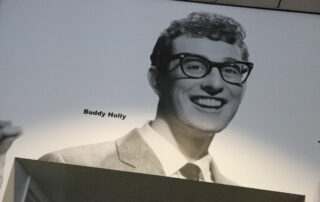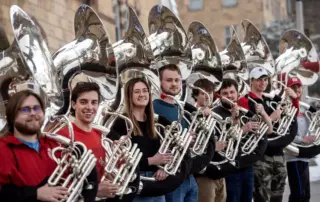As Althea René Miller launches into a spoken work poem, you get the sense she’s heading someplace remarkable. And her work as a graduate student specializing in multi-cultural education seems to also be putting her on a path to do some great things. Even her side pursuit teaching African dance at Madison’s Woodland Montessori School fits into this broader theme of a young life already dedicated to equality and celebrating cultural diversity.
“I love this idea of Sankofa,” Miller says. “And that’s from the Akan people. They have several beautiful symbols that mean a host of wonderful spiritual things. And that’s the one that myself and my friends connect to; that’s Sankofa which means it’s not taboo to go back and recover that which is lost.
Miller recovers what’s lost by reconsidering her own story as the child of a single mother and absent father in her poem ‘We Be’ saying “Sometimes we be left lonely with children that took more than ourselves to conceive. But we be pink sidewalk chalk.”
Pink sidewalk chalk draws an image of a happy childhood despite its challenges. As Miller notes, her mother “did everything she could to make me not feel that absence. And that’s kind of what I was hitting on, like, ‘We be pink sidewalk chalk.’”
Instead of the stereotypical framing of single motherhood as dire and destructive to family, she celebrates, in her poem, the strength of women raising children on their own: “We be mustard seeds moving mountains. Mighty. Making valleys level ground for our children to play on.”
“It’s not just my story. There’s a collective story being told. We all share some part of history. Some part of trauma. We’re all connected. And to be able to get on stage and share that connection is very important.”
And Althea makes those connections in her academic work, confronting stereotypes and statistics not only in performance but as a champion of multicultural education. “I want to make education more accessible,” she says. “That’s what we should be focusing on. Making sure that education and the way that we teach all students of all ages is relevant to who they are, the context that they live in.”
The context Miller lives in continues to shape who she is. As she says, “The more that I read. Or dance. Study. Or work in the community. The more that things come together and the picture of my life becomes clear.”
Like many students, Althea doesn’t know exactly where she’ll end up. But chances are it will be someplace remarkable.
“Art as a mode of healing. Education as a form of liberty. These are things that I’m working toward,” reflects Miller. “I don’t have a specific idea in mind, but I see it converging. And that’s what I love.”

